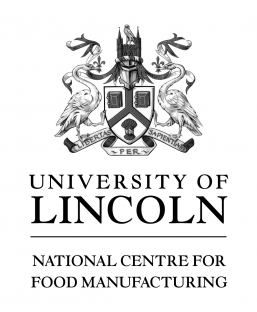
Course Summary
This FdSc programme is mapped to the FdSc Food Science and Technology standard to enable employers to utilise the apprenticeship levy to develop their scientific and technical teams and provide progression opportunities for employees. This programme is also available as a stand-alone FdSc to provide access to non-levy funded or self-funded students.The Course
This course can be undertaken as part of a Degree or Higher Apprenticeship. The FdSc Food Science and Technology foundation degree aims to help students develop the skills and knowledge needed to be a leader in technical and quality management or in new product or process development.
Developed in collaboration with employers in the food manufacturing industry, the programme offers students the opportunity to develop expert knowledge in quality assurance, factory processes, product development, and management specific to the food sector.
The course introduces students to the significant recent trends in food safety and quality management in the food sector, both in the UK and internationally. Students have the opportunity to develop an extensive knowledge of food manufacture, while specialising in quality assurance and technical management. This includes areas such as hygiene, preservation and packaging, product development, leadership, and performance monitoring across areas of quality, safety, and legality.
Students typically complete the Foundation course in two and a half years and have the option to enrol on level three of the Bachelor’s degree, following a short bridging course, to pursue more in-depth study for an additional two years. Direct enrolment on to the Bachelor’s degree is available for students who meet the entry requirements.
Applications should be made direct to the University using the part-time application form:
http://www.lincoln.ac.uk/apply
We welcome visitors to the NCFM, to organise a visit contact us on 01406 493000 or email: ncfm@lincoln.ac.uk
How You Study
The FdSc Food Science and Technology is a programme taught through blended part-time distance learning and three study blocks per year from the University of Lincoln’s National Centre for Food Manufacturing (NCFM) based in Holbeach.
Distance learning is achieved through the delivery of engaging digitally-enhanced learning materials produced by experienced research-led academic and support staff. In addition, module seminars and tutorials are typically planned to give students the opportunity to apply, investigate, assimilate and evaluate issues around the core lecture topics.
Practical sessions, where applicable, for experimentation and/or illustration of principles, practices and techniques are timetabled for the appropriate modules and typically delivered through student attendance at campus during the study weeks.
Individual modules also have an element of food manufacturing site visits and seminars led by food industry experts.
There is some flexibility, but it is expected that the normal duration for completion of the programme is approximately two and a half years.
For those students undertaking this course as an apprentice, an End Point Assessment is required.
Modules
Level 1
- Food Commodities (Core) Find out more
- Food Law, Ethics and CSR (Core) Find out more
- Food Process Engineering (Core) Find out more
- Food Quality Assurance, HACCP and Hygiene (Core) Find out more
- Food Raw Materials (Core) Find out more
- Food Science (Core) Find out more
- Introduction to Food Chemistry and Microbiology (Core) Find out more
- Policy and Market Dynamics (Core) Find out more
Level 2
- Advanced Food Science (Core) Find out more
- Food Preservation (Core) Find out more
- Foundation Project (Core) Find out more
- Fundamentals of Fresh Produce (Option)† Find out more
- Managing People in Food Organisations (Core) Find out more
- Nutrition, Health and Diet (Core) Find out more
- Packaging Systems (Core) Find out more
- Product Development (Option)† Find out more
†The availability of optional modules may vary from year to year and will be subject to minimum student numbers being achieved. This means that the availability of specific optional modules cannot be guaranteed. Optional module selection may also be affected by staff availability.
How You Are Assessed
The way students are assessed on this course may vary for each module. Examples of assessment methods that are used include coursework, such as written assignments, reports or dissertations; practical exams, such as presentations, performances or observations; and written exams, such as formal examinations or in-class tests. The weighting given to each assessment method may vary across each academic year. The University of Lincoln aims to ensure that staff return in-course assessments to students promptly.
The assessment timetable is planned, as far as is reasonably practical, to take account of busy periods within the industry. For those students undertaking this programme as part of an apprenticeship 20% off the job is required in agreement with the employer.
Assessment Feedback
The University of Lincoln's policy on assessment feedback aims to ensure that academics will return in-course assessments to students promptly – usually within 15 working days after the submission date.
Further guidance is available for the assessment strategy as part of the End Point Assessment.
Fees & Scholarships
For Home/EU students
The following fees apply to students who are paying their own fees. They also apply to students who are being sponsored by their employer outside of Apprenticeship schemes. Employers seeking to support students through the Apprenticeship levy should contact the National Centre for Food Manufacturing directly.
Foundation Degree Programmes
| September 2017 | January 2018 | |||
|---|---|---|---|---|
| Credits | Cost | Credits | Cost | |
| Year 1 | 105 | £5,460 | 60 | £3,120 |
| Year 2 | 105 | £5,460 | 105 |
£5,460 |
| Year 3 | 30 | £1,560 | 75 | £3,900 |
| Total | 240 | £12,480 | 240 | £12,480 |
| Individual modules | Students wishing to access individual modules in any year of the programme will be charged £52 per credit point. | |||
For International fees, please contact the HE Administrator on HEAdminNCFM@lincoln.ac.uk
Apprenticeship charges for employers accessing open provision
Levy Paying Employers – funding bands
Apprenticeship frameworks and standards are assigned to a funding band by the Government and the table below shows the allocation of NCFM’s Apprenticeship provision within the Government’s funding bands. Charges are listed below for Apprenticeships underpinned by standards. These are subject to any changes made by the Government to published funding rates as defined in the following link https://www.gov.uk/government/publications/apprenticeship-funding-bands.
For further information on NCFM’s charges for Apprenticeship provision please contact Sharon Green on shgreen@lincoln.ac.uk or call 01406 493000.
| Level | Duration | Programme | Band | Band Maximum /charge |
|---|---|---|---|---|
| 6 | 4 years | Degree Apprenticeship - underpinned by BSc (Hons) | 15 | £27,000 |
| 6 | 18-24 months | Degree Apprenticeship – ‘top up’ from Foundation Degree | 15 | Charge - £14,000 |
| 5 | 3 years | Higher Apprenticeships | 15 | £27,000 |
Non-Levy Paying Employers
Non-Levy Paying Employers should contact the National Centre for Food Manufacturing directly to check the availability of Education and Skills Funding Agency funded Apprenticeship places for smaller employers. Where funded places are available, eligible businesses are required to contribute to 10% of the above charge. There is an exception for businesses employing fewer than 50 people where Apprentices aged 16 to 18 at the start of their programme can be fully funded.
For more information and for details about funding your study, please see our UK/EU Fees & Funding pages or our International funding and scholarship pages.
Additional Costs
For each course students may find that there are additional costs. These may be with regard to the specific clothing, materials or equipment required, depending on their subject area. Some courses provide opportunities for students to undertake field work or field trips. Where these are compulsory, the cost for the travel, accommodation and meals may be covered by the University and so is included in the fee. Where these are optional students will normally (unless stated otherwise) be required to pay their own transportation, accommodation and meal costs.
With regards to text books, the University provides students who enrol with a comprehensive reading list and our extensive library holds either material or virtual versions of the core texts that students are required to read. However, students may prefer to purchase some of these for themselves and will therefore be responsible for this cost. Where there may be exceptions to this general rule, information will be displayed in a section titled Other Costs below.
Entry Requirements 2019-20
GCE Advanced Levels = CC
BTEC National Diploma in Food Manufacturing or a related subject: Merit, Merit
Vocational and Professional qualifications will also be considered.
Ideally, candidates will have been employed in a managerial or supervisory role in the food manufacture or related industry.
In addition, applicants must have at least 2 GCSEs in Maths and English at grade C or above. Equivalents are accepted for example Functional Skills Level 2 or IELTS.
Learn from Experts
Throughout this degree, students may receive tuition from professors, senior lecturers, lecturers, researchers, practitioners, visiting experts or technicians, and they may also be supported in their learning by other students.
Comprehensive list of teaching staff
Your Future Career
The food industry provides a range of opportunities for ambitious, qualified graduates with a specialism in quality assurance and technical management. Previous graduates have gone on to careers in many areas of the industry, such as technical management, supply management, auditing and product development.
Careers Service
The University Careers and Employability Team offer qualified advisors who can work with students to provide tailored, individual support and careers advice during their time at the University. As a member of our alumni we also offer one-to-one support in the first year after completing a course, including access to events, vacancy information and website resources; with access to online vacancies and virtual resources for the following two years.
This service can include one-to-one coaching, CV advice and interview preparation to help you maximise our graduates future opportunities.
The service works closely with local, national and international employers, acting as a gateway to the business world.
Visit our Careers Service pages for further information http://www.lincoln.ac.uk/home/campuslife/studentsupport/careersservice/.
Facilities
The University’s National Centre for Food Manufacturing (NCFM) is based in Holbeach in south Lincolnshire. It offers specialist facilities and industry-standard equipment including a sensory suite and test kitchen, analytical laboratories, a technician training centre and processing facilities.
At Lincoln, we constantly invest in our campus as we aim to provide the best learning environment for our undergraduates. Whatever the area of study, the University strives to ensure students have access to specialist equipment and resources, to develop the skills, which they may need in their future career.
Students can also make the most of the University's award-winning Great Central Warehouse Library, which provides access to more than 250,000 printed books and over 400,000 electronic books and journals, as well as databases and specialist collections. The Library has a range of different spaces for shared and individual learning.
Minerva House,
Holbeach Park Road,
Spalding,
Lincolnshire,
England,
PE12 7PT

 cy
cy




